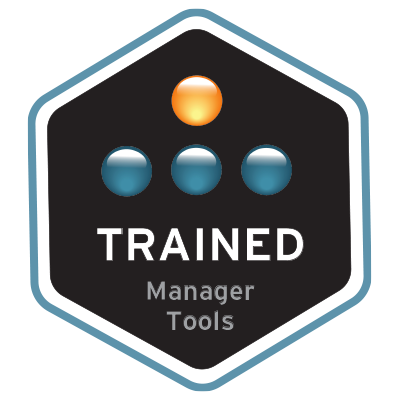![]()

in
Forums
Hi folks,
My company asked me to deliver a 1 day training next month internally to managers in other department about change management. Becase it is my first time deliverying a training and it's a big deal for me. I would like to hear some advice from MT community about how to write the opening and closing of the training.
Is there any resources or advices on how to structure the opening? Thanks.
Gracie



Opening a training
Gracie,
There are two things to start with. For a new group I always start with the goals of the day's meeting. Have them written on the board and leave them there. After that I ask the group to create some general rules for the day. Brainstorm all the things that they know make meetings most effective. Slip in a couple they miss. I alway make sure we agree to:
Stun all electronics (or fruit bowl the phones)
No laptops (have notepads and pencils available)
Use a Parking Lot for off task conversations
Respect/Safe Place (nobody puts anybody else down)
Do listen to the podcasts on presentations and running meetings. There are tons of ideas and Mike and Mark have wonderful guidance.
Martin
Along with the goals, try to
Along with the goals, try to find out what Change Management means to them.
If you also look at Management of Change (MOC), how do they differ?
I work with both of these concepts and I have had a bear of a time to get the ideas firmly planted in my leadership team's heads.
Let us know how it turns out.
Mac
My two cents. I've given
My two cents.
I've given several one-day training seminars. Early on I realized I was too optimistic about the volume of information I could present in an effective manner. My first two one-day seminars were met with eyes glazed over and some stifled yawns across the room. Thinking back on it, I probably sounded like an auctioneer.
Most people can keep a decent attention span for 45 minutes, then retention drops like a rock. Don't try to cram in too much information. Break the presentation up into smaller segments. Add frequent "stand up and move around some" breaks. Change it up. Last time I did this it was nice weather so I brought the group outside for the segment right after lunch.
If it's an eight-hour day, maybe teach them 10 things. Teaching them 10 things they'll remember is much better than teaching them 25 things they'll forget.
Find local advice
Check within your network for folks who train others for a living. They can help you figure out how to structure such seminars.
An easy way to widen your network is to attend a few nearby Toastmasters club meetings. You don't have to join, you just have to mention that you're looking to network into someone giving advice on structuring one-day seminars. Toastmasters provides seminar material on certain leadership and presentation skills, for members to present to benefit their communities; there will be members you can easily reach to get that advice.
Some ideas
Hi Gracie,
I like what Martin and Mr Reliable had to say. What are your core messages that you want the attendees to leave with. Identify the components of the training material that directly correlate to those core objectives and make sure you focus on them during the training.
In your introduction, explain why you are training them, what it is they are going to learn, and how they are going to learn it. Display the items on a list visible to everyone and keep it visible all day.
As you hit on points during the day, check off the items on the list.
At the end of the day, you can go over the list and remind people what they learned, how they learned it and why it is important.
Another thing that may help you is to assess people's current knowledge level. You may be able to do this up front or you may have to do it during the opening. Since you are going to do the MT introduction process (Right?) then you coupld pop in a question about how much they know about your training topic. This again helps you to tailor your message during the day.
You could also ask your manager for some help to ensure you are as successful as possible.
Kind regards
Kevin
Thank you
Thank you very much. I didn't expect this much reply when I posted it. Your valuable advice had made my day. Appreciate it!
I'll take these into consideration and let you know how it goes.
Thank you.
Gracie
Some Other Resources
Hi Gracie,
I learnt instructional design in the 90's and Bob Mager was the guru. His stuff is still relevant now, and very accessible. (Short and easy to take in, and quite cheap 2nd hand on Amazon.)
Also, I talk about opening and closing in various posts at my blog called How To Be a Facilitator. Some examples:
http://howtobeafacilitator.blogspot.com.au/search/label/introduction
http://howtobeafacilitator.blogspot.com.au/search/label/closing
I'm a big fan of Warren Berger's work on 'beautiful questions', and can commend a bunch of useful questions to you at this post: http://howtobeafacilitator.blogspot.com.au/2011/04/do-your-homework.html
And lastly, have a great time doing the training - if you are enjoying yourself, they will probably enjoy the experience (and learn more) too.
...Geoff